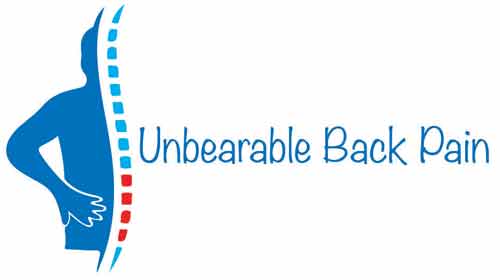Hypothyroidism, often known as an underactive thyroid, is when the thyroid gland doesn’t produce enough thyroid hormones. These hormones regulate your body’s metabolism, temperature, and overall energy levels. When they’re out of balance, it can feel like your whole body is out of sync.
People with hypothyroidism often experience a range of symptoms that go beyond the most common signs like fatigue and weight gain. Some might face unexpected issues such as dry skin, hair loss, and even depression. What’s sometimes overlooked is how these hormonal changes can affect your musculoskeletal system, potentially leading to pain and discomfort in various parts of your body, including the back.
Understanding that hypothyroidism doesn’t just impact your thyroid gland is important. When left untreated, it can lead to more severe health conditions like heart disease, high cholesterol, and joint pain. The body is a complex system, with each part interconnected. When the thyroid isn’t functioning properly, it can cause a chain reaction of health issues.
Getting an early diagnosis is key. If you suspect you have hypothyroidism due to persistent symptoms, consulting with a healthcare professional for proper testing is essential. Once diagnosed, managing the condition through medication, diet, and lifestyle changes can make a significant difference in your quality of life. Don’t hesitate to seek medical advice and get the support you need.

Linking Hypothyroidism to Back Pain: What Science Says
The connection between hypothyroidism and back pain isn’t always obvious. However, understanding this link can help you better manage your symptoms. Hypothyroidism affects the production of thyroid hormones, which are crucial for metabolism and maintaining healthy tissues. When your thyroid hormone levels are low, your muscles and joints can suffer, potentially leading to various aches and pains, including back pain.
Research has shown a clear association between hypothyroidism and musculoskeletal complaints. Several studies highlight how those with underactive thyroids often report more frequent and severe muscle and joint pain compared to those without thyroid conditions.
The mechanisms at play are complex but enlightening. Low thyroid hormone levels can lead to increased inflammation and fluid retention, both of which can cause muscle stiffness and pain. Inflammation is your body’s way of responding to injury or infection, but in chronic cases like hypothyroidism, it can persist and contribute to ongoing discomfort.
Many patients experiencing hypothyroidism-related back pain have shared their journeys, adding real-world context to scientific findings. These stories often underscore the importance of taking a holistic approach to treatment. Listening to your body and understanding these connections can empower you to seek comprehensive care, whether through medical treatment, physical therapy, or lifestyle changes.
Managing Back Pain Linked to Hypothyroidism: Effective Strategies
When dealing with back pain caused by hypothyroidism, a multi-faceted approach to treatment is often the best course of action. One of the primary strategies is medical treatment, particularly thyroid hormone replacement therapy. This therapy helps to restore your thyroid hormone levels, which can, in turn, alleviate systemic symptoms, including back pain.
Physical therapy is another excellent option for relieving back pain. A professional therapist can guide you through exercises tailored to stretch and strengthen your muscles, which can help mitigate pain. Gentle activities like yoga and Pilates can also provide relief by improving flexibility and posture.
Diet and lifestyle modifications play a crucial role in managing hypothyroidism and its associated symptoms. Eating a balanced diet rich in essential nutrients can support thyroid function and overall health. Avoiding processed foods and including thyroid-friendly nutrients like iodine, selenium, and zinc may make a noticeable difference.
Exploring alternative therapies can also be beneficial. Some people find relief through acupuncture, which may help reduce inflammation and improve circulation. Chiropractic care is another option, with some reports suggesting it can help realign the spine and relieve back pain. Always consult with your healthcare provider before starting any new treatment to ensure it’s safe and appropriate for you.
Living Well with Hypothyroidism: Tips and Resources
Building a solid support system can make living with hypothyroidism much easier. Family, friends, and support groups offer emotional support that’s invaluable when dealing with chronic health conditions. Talking about what you’re going through, sharing experiences, and discussing coping strategies can make a huge difference.
Regular monitoring and managing of symptoms are crucial for anyone with hypothyroidism. Keeping up with regular check-ups and lab tests helps ensure that your thyroid hormone levels are where they need to be. Self-care routines, such as adequate sleep, regular exercise, and stress management, also contribute to managing symptoms effectively.
Hypothyroidism can affect mental health, leading to symptoms like depression and anxiety. It’s important to recognize these challenges and address them head-on. Seeking help from mental health professionals and incorporating practices like mindfulness and meditation can support emotional well-being.
The right resources can empower you to manage hypothyroidism more effectively. Reliable information from credible sources like medical websites, health organizations, and trusted healthcare providers can offer guidance. Books, online courses, and apps tailored for people with thyroid issues can also provide valuable knowledge and support.
Final Thoughts
While hypothyroidism may not be the first thing that comes to mind when dealing with back pain, its impact on muscle strength, joints, and overall energy levels can contribute to discomfort. By addressing your thyroid health, staying active, and practicing proper self-care, you can take important steps toward managing back pain.
To help relieve discomfort and support your body, I recommend exploring helpful products like Thyroid Support. It’s a practical step toward improving your comfort and managing symptoms effectively.
Take control of your health—you deserve to feel your best every day!

Here’s a little transparency: Our website contains affiliate links. This means we may receive a small commission if you click and purchase. Don’t worry, there’s no extra cost to you. It’s a simple way you can support our mission to bring you quality back relief content.


Hi Michael,
The article provides an overall analysis of the association between hypothyroidism and back pain-a rather less-recognized symptom of the disease. It succeeds in pointing out how disturbances of the hormonal may be translated, in terms of pathophysiology, into disturbances to the musculoskeletal system, leading to back pain and other somatic complaints.
This holistic approach to symptom management incorporates medical treatment, physical therapy, diet, and alternative therapies, hence it should hold special value for those interested in a broad approach to health issues. It should provide practical help to the sufferer to alleviate some of the physical and emotional challenges associated with hypothyroidism and to enhance overall quality of life.
Hello John,
Thank you so much for your thoughtful and detailed feedback! I’m glad you appreciated the holistic approach discussed in the article, especially regarding the often-overlooked connection between hypothyroidism
and back pain.
I’m pleased to know that the article successfully presented a well-rounded approach that can be of practical value for individuals dealing with the physical and emotional challenges of this condition.
If you or others have more questions on managing back pain or any other thyroid-related concerns, feel free to ask. Your interest in a broad, integrative approach to health is greatly appreciated, and I’m always happy to explore these topics further!
Best regards,
Michael